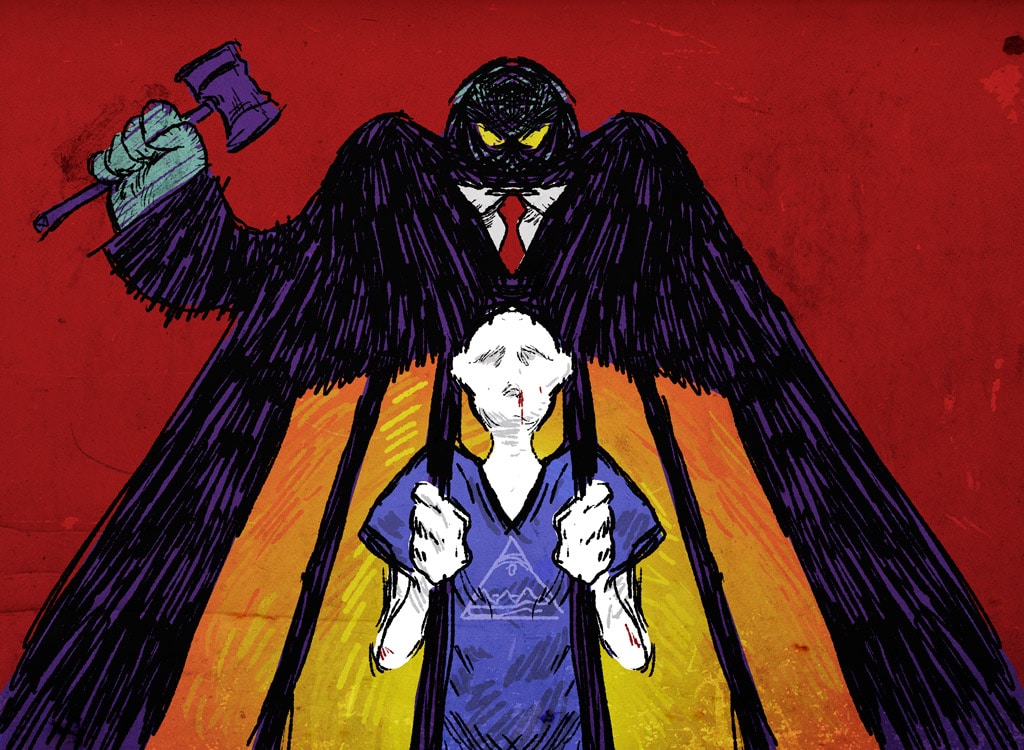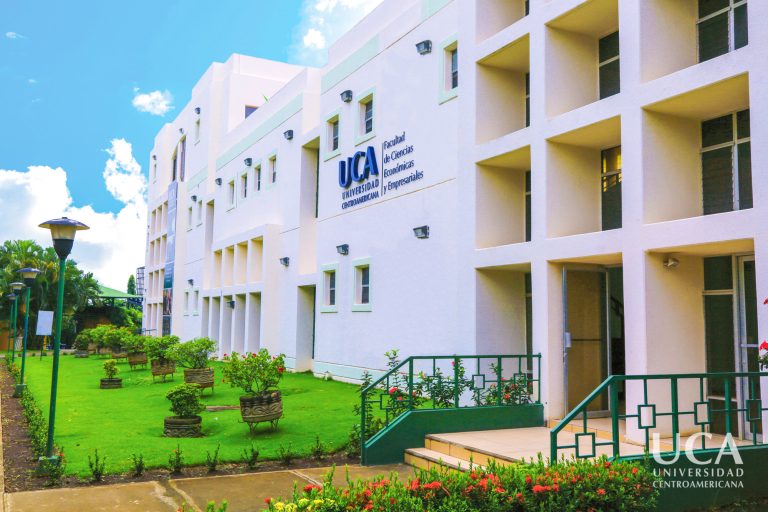15 de agosto 2023

Nine Nicaraguan Lawyers Receive International Award

PUBLICIDAD 1M
PUBLICIDAD 4D
PUBLICIDAD 5D
Student leaders, academics, and activists see the dictatorship’s attack on UCA as “revenge” against the university for encouraging critical thinking

The Daniel Ortega regime’s move to freeze the bank accounts and property assets of the Central American University (UCA) are “an attack against the university community,” according to human rights advocates, researchers, academics and alumni.
These blockades represent the most recent assault of the Ortega dictatorship against Nicaragua’s private universities. In the two and a half years from the end of 2021 until mid-2023, they have cancelled the accreditation and right to operate of 26 Nicaraguan universities.
In 2021, the National Council of Universities listed the UCA as having an enrollment of over 5000 students and 546 faculty members. That was the last data that was made publicly available. Uncertainty and fear now hangs over all of them.
Their greatest fear is that the regime’s aggressive move will culminate with the confiscation of the university, as has already occurred with eleven of the shuttered private universities, as well as educational centers previously administered by the Catholic Church.
On Saturday, August 12, in a new communication sent to the university community, the UCA administration reiterated that it was working to resolve its administrative and financial situation but affirmed it would continue operations. No further details of the situation were offered.
The university stressed that its normal activities would continue. Their social networks reported a normal start for their specialized academic programs, such as graduate courses and courses that offer special certification. Similarly, according to their academic calendar, registration for second semester classes would be held on August 14 and 15, and regular classes would begin on Monday, August 21.
The blockade imposed on the UCA is an act of “vengeance against thought, criteria, conscience,” states former political prisoner Lesther Aleman, who graduated from this center of higher education. The student leader sees these acts as tied in with the religious persecution the country is experiencing, because he feels that this is an attack on the Jesuit Society of Jesus. Aleman shared these perceptions in an interview with the weekly internet news program Esta Semana, transmitted over YouTube.
He urged the international community not to abandon the UCA. “No government that defends democracy and rights should look the other way while the Central American University is about to be snatched up,” he commented pointedly.
Aleman urged all those concerned to “help prevent having the present and future dreams stripped away from thousands of young people who aspire to do something in Nicaragua, or aspire to become professionals.”
“The alarming thing is that the students are engulfed in uncertainty, not knowing whether or not they can continue their second, third, first or last year at the UCA. The implications of this are very serious,” lamented Aleman, now banished and stripped of his nationality.
The UCA was the first private university in Central America and has been operating for 63 years. It was founded by Society of Jesus in 1960. It’s undergraduate program currently encompasses four large areas of study: Law; Communications and the Humanities; Science, Engineering and the Environment; and Business. It also offers 21 different graduate level courses, including Master’s programs in Business and in Education, and specialized courses or programs of advanced study. In addition, the UCA operates four research institutes and two research centers, supporting interdisciplinary studies in Social Sciences, Natural Sciences, Nicaraguan and Central American History, Development, plus a Center for Molecular Biology and Center for Innovation.
Student leader Yunova Acosta, who also spoke on Esta Semana, agreed that the actions undertaken against the UCA “are a message, not only to the student community, but also to the religious groups, the Jesuit Community and even at a Central American level.” She added: “It’s alarming and worthy of condemnation.”
Human rights advocate Gonzalo Carrion believes the Ortega regime “has mounted an attack on the university community,” with every center of studies they’ve closed. He warned that the current action simply adds to the systematic repression that prevails in the country.
Carrion recalled that the first attempt to break the UCA was through economic strangulation in 2022, by cutting them out of the mandatory 6% of the national budget that goes to the universities. That action was a collaboration between the Interior Ministry, the National Council of Universities, and the National Council of Evaluation and Accreditation. After 2019, the latter body also stopped issuing yearly certification of the university’s correct operations.
Carrion added that the UCA is a “symbol of teaching and quality in Nicaragua.” Its students joined in the citizen protests during the 2018 April Rebellion. When in September 2018, the regime moved to quash all protest and instituted a de facto police state, its campus was the last secure place for protests demanding the release of the political prisoners. “For that, and an accumulation of other things, they want the Central American University to pay,” the human rights advocate said.
When Father Rolando Alvarado assumed rectorship of the UCA on July 7, 2022, he stated that the normal rotation of this post “on this occasion coincides with a certain modification in the external and internal circumstances under which the change is taking place.” He avoided any specific reference to the fact that the Ortega regime had barred the former rector, Jesuit priest Jose Alberto Idiaquez who had been in his post since 2014, from returning to the country, thus forcing the change in leadership.
“The possibilities and limits on the future road of our university must now respond to new challenges and opportunities,” expressed Father Alvarado at that time. He noted: “the UCA is, above all else, an institution of a cultural nature. That’s its social identity, that’s what it’s dedicated to, that’s the arena within which its duties are set out – that of culture.”
For their part, the UCA students remain alert, watching the possible outcome of this situation. Several of them told Confidencial that if the university is confiscated, they may consider leaving the country.
“Maria” [assumed name] assures: “everything is very tense.” This week, she tried to get a copy of her transcript as a preventive measure but couldn’t finalize the transaction because there was no way to make the corresponding payment.
She was surprised to find that she wasn’t the only one in the UCA Registrar’s office wanting to do the same thing – normally, she says, it’s empty, especially during this vacation period.
She stated that there were about 30 students there, all requesting their transcript or trying to receive their official diplomas. She confided that some of her classmates had gotten their transcripts months ago, precisely for fear that the UCA could be confiscated, as has occurred with other private entities.
The Executive Secretary of the Inter-American Legal Assistance Center for Human Rights (CALIDH), Danny Ramírez, pointed out that the regime is not only attacking university autonomy, but is also violating religious freedom in its persecution against the Catholic Church.
The UCA is part of the Association of Universities Entrusted to the Jesuit Order in Latin America (AUSJAL), made up of 30 universities in 14 countries in the region. The University website notes that it’s part of the network of Jesuit Higher Education Institutions in Europe, Asia and the United States.
It defines itself as “a private, autonomous, and public service university, entrusted to the Society of Jesus. Inspired by Ignatian spirituality and pedagogy, which contributes to the construction of a just, critical, inclusive society committed to the common good”.
This attack on the UCA also targets the Jesuit congregation, Ramírez declared, and is part of a chain of attacks by the dictatorship against various denominations of the Catholic Church.
According to data from researcher Martha Patricia Molina, at least 10 religious congregations throughout the country have been affected by repressive measures imposed by Ortega, among them the Dominicans of the Anunciata, Missionaries of Charity, Trappist Nuns, Religious of the Sacred Cross Heart and Poor Sisters of Jesus Christ of Nicaragua.
This article was originally published in Spanish in Confidencial and translated by Havana Times.
PUBLICIDAD 3M
Confidencial es un diario digital nicaragüense, de formato multimedia, fundado por Carlos F. Chamorro en junio de 1996. Inició como un semanario impreso y hoy es un medio de referencia regional con información, análisis, entrevistas, perfiles, reportajes e investigaciones sobre Nicaragua, informando desde el exilio por la persecución política de la dictadura de Daniel Ortega y Rosario Murillo.
PUBLICIDAD 3D